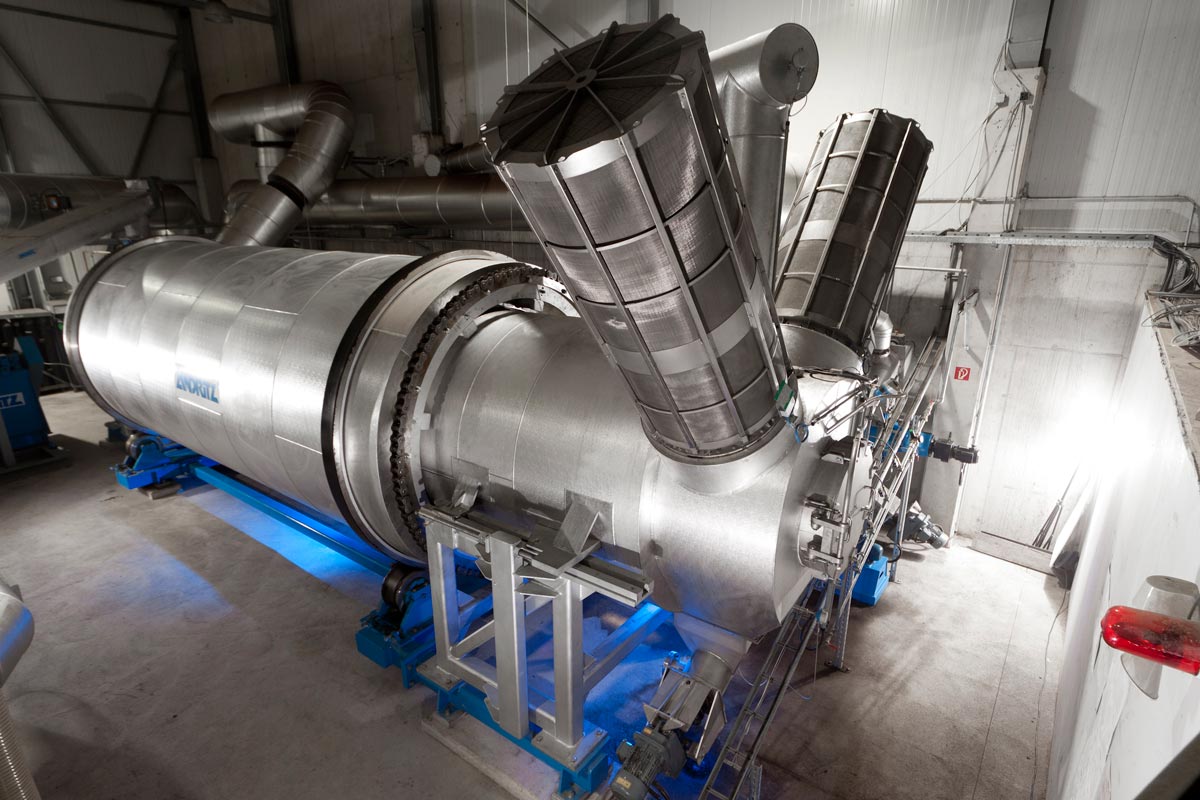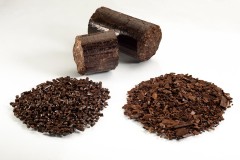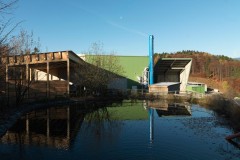With scientific support from the Austrian Research Institute for Chemistry and Technology (ofi), an Austrian consortium consisting of ANDRITZ, Polytechnik Feuerungsanlagen GmbH and Wild & Partner is developing a new process to heat treat biomass in order to optimize its chemical and physical characteristics.
Torrefaction (from Latin “torrere” to roast, parch) denotes a thermochemical process during which a pyrolytic decomposition of the raw material takes place at relatively low temperatures between 250 and 300 °C in the absence of air. Biomass consists mainly of water, cellulose, hemicellulose and lignin. During torrefaction low-energy biomass components enter the gas stage. At first water is driven off, then hemicellulose decomposes, as does lignin to some extent.
The aim is to increase energy density with respect to mass and volume, and thus the calorific value of the raw material. The mass is reduced by about 70% whereas 90% of the calorific value is retained within the solid substance. The energy density of torrefied pellets comes to 15-18 GJ/m3 (conventional wood pellets 11 GJ/m3), and the calorific value can be increased by up to 20%. Apart from that they have further advantages.
Advantages of Torrefied Pellets
- high energy density
- improved calorific value
- improved combustion characteristics
- lower biological activity
- good grindability, which reduces energy consumption in processing
- improved resistance to weathering permits open-air storage
Due to their high energy density and storability, transporting torrefied pellets even over long distances is more economical than with conventional pellets. Torrefied pellets therefore have the potential to be marketed worldwide as a mass-produced commodity for industrial applications.
Technically, torrefied biomass could be used where today coal or conventional pellets are utilised (industrial boilers, steelworks, agriculture). This innovative product is primarily suitable as a substitute for coal and could contribute considerably to a reduction of fossil CO2 emissions when used as a supplementary fuel in coal power stations.
Following successful basic research, the project team was able to start test operating the first ACB (Accelerated Carbonized Biomass) pilot plant with a capacity of 1 t/h in Frohnleiten (Steiermark, Austria) in 2011.
Share

